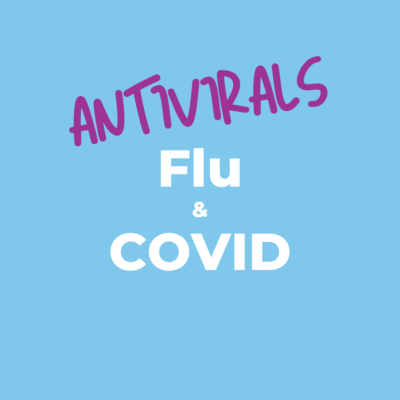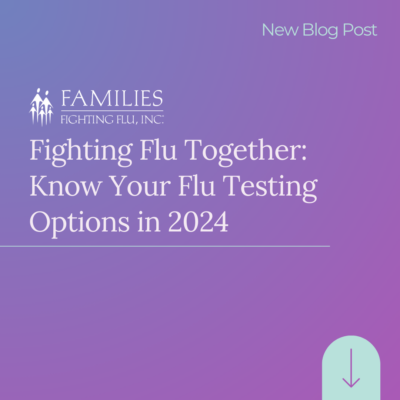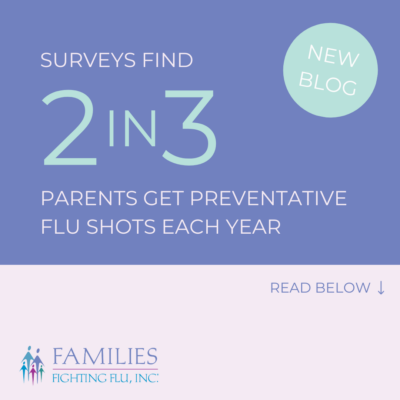
- Science & Research
Flu and COVID-19 Antiviral Treatments

Once you’ve taken a diagnostic test and have been diagnosed with COVID-19 or flu, what can you do? You don’t have to just sit at home and wait it out – instead, there are treatment options!
Below, we outline how flu and COVID-19 antivirals compare:
Similarities:
- How they work: antivirals work to stop the virus from infecting and making copies in your cells and stop the spread of flu or COVID-19 to healthy cells.
- Benefits: people who take them are expected to be sick for less time, have complications, be hospitalized, or die from flu/COVID-19.
- When to take: ASAP! Antivirals work best when taken early because the medication stops the virus from making copies.
- They are different than antibiotics: Antivirals work to treat viruses, while antibiotics fight against bacterial infections. However, some people who get sick with a virus can develop a secondary bacterial infection.
- Medication is not a substitute for vaccination! Prevention is much more effective than intervention – people who are vaccinated are likely to have better outcomes than people who are unvaccinated. The antivirals add an extra layer of protection.
Differences:
![]()
Flu antivirals:
- There are four FDA-approved antiviral drugs to treat flu: oseltamivir phosphate (available as a generic version or under the trade name Tamiflu®), zanamivir (trade name Relenza®), peramivir (trade name Rapivab®), and baloxavir marboxil (trade name Xofluza®).
- CDC recommends prompt treatment for people who have flu or suspected flu and who are at higher risk of serious flu complications, such as people who are pregnant, those with asthma, diabetes (including gestational diabetes), or heart disease.
COVID-19 antivirals:
- There are currently two oral pills that are available for people to take in an outpatient, non-hospital setting – Paxlovid and Mulnupiravir
- COVID-19 antivirals are currently in short supply in the U.S.
- Other treatment options include monoclonal antibodies, injections, and infusions that take place in hospitals or clinics – some are reserved only for people who are hospitalized or in critical condition.
Get tested!
Don’t assume that a test won’t make a difference. An accurate diagnosis can lead to proper treatment.
![]()


